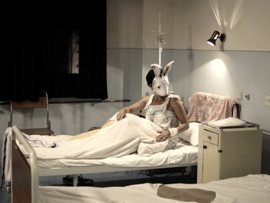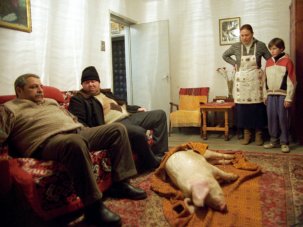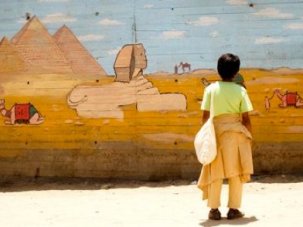Web exclusive
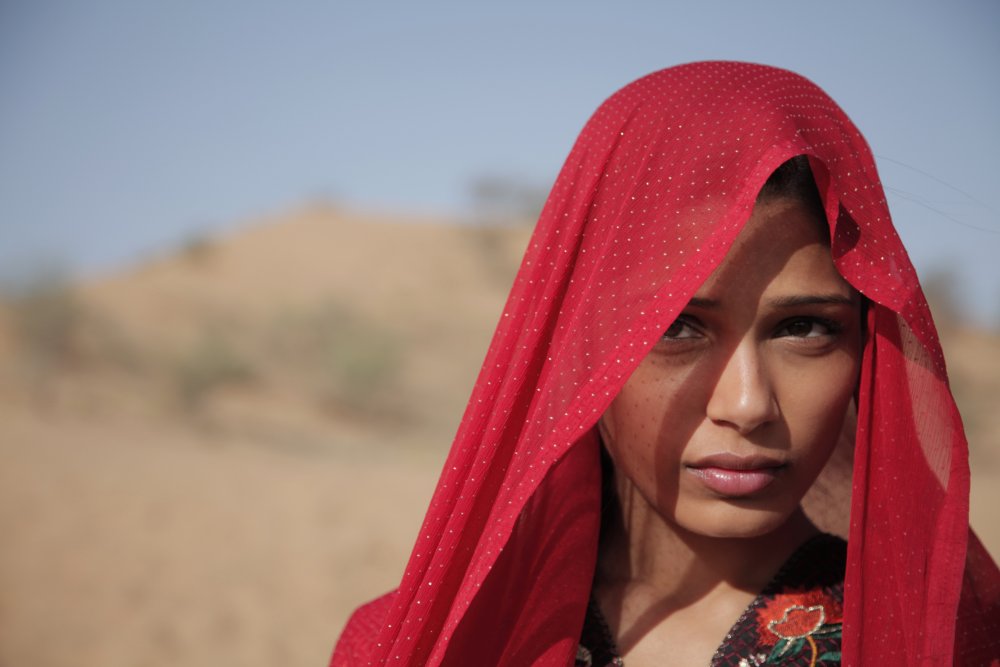
Trishna (2011)
There are certain words critics fall back on when they are pigeon-holing directors: edgy (David Lynch), austere (Béla Tarr), veteran (anyone over 50)… With Michael Winterbottom, still nine years off being a veteran, the word is ‘prolific’, and it’s a hard one to argue against. Since making his feature debut in 1995 with Butterfly Kiss, Winterbottom has completed 17 features, one documentary, and a television series which became a feature (The Trip). His 20th film, Trishna, opens this week. A 21st, Seven Days, shot a few weeks at a time over a five-year period, is finally in post-production. And he is about to start shooting The King of Soho, starring Steve Coogan as Paul Raymond, owner of upmarket strip club The Raymond Revuebar, which dominated Soho from 1958 to 2004. That’s an impressive portfolio by anyone’s standards.
Apart from ‘prolific’, however, Winterbottom is hard to stick a label on – which, I suspect, is pretty much the way he likes it. What’s more, he says, spending more time on a set than on the sofa is where he gets his ideas from. “When you’re working, it constantly throws up aspects of work that might interest you. If you’re sitting at home for five years, you won’t discover a single thing that you want to make. Working is generally what gives you the ideas.”
So far, so un-auteurish: it’s hard to construct a worldview which encompasses 24 Hour Party People and Code 46, 9 Songs and The Claim, Genova and Jude. Maybe ‘restless curiosity’ is his USP. But before we consign Winterbottom to the very British ranks of sheepskin-coat professionals, happiest when they have a viewfinder round their necks, the scent of bacon sarnie in their nostrils and the sense of a proper job well done, it might be worth looking a bit more closely at the director’s output.
After studying English at Oxford and doing the obligatory television apprenticeship (including a Cracker two-parter in 1993), Winterbottom found himself in competition in Berlin with Butterfly Kiss in 1995. Since then, he has had a startling pedigree when it comes to that most auteur-oriented of institutions, the major film festival. Five of his films have been in competition in Berlin, where he has won both a Golden Bear (In This World in 2003) and a Silver one (as Best Director for The Road to Guantanamo in 2006). He’s also had five films in selection at Cannes, one in Venice, one in San Sebastian, one in Sundance and three – including Trishna – in Toronto. This is not really sheepskin-coat territory.
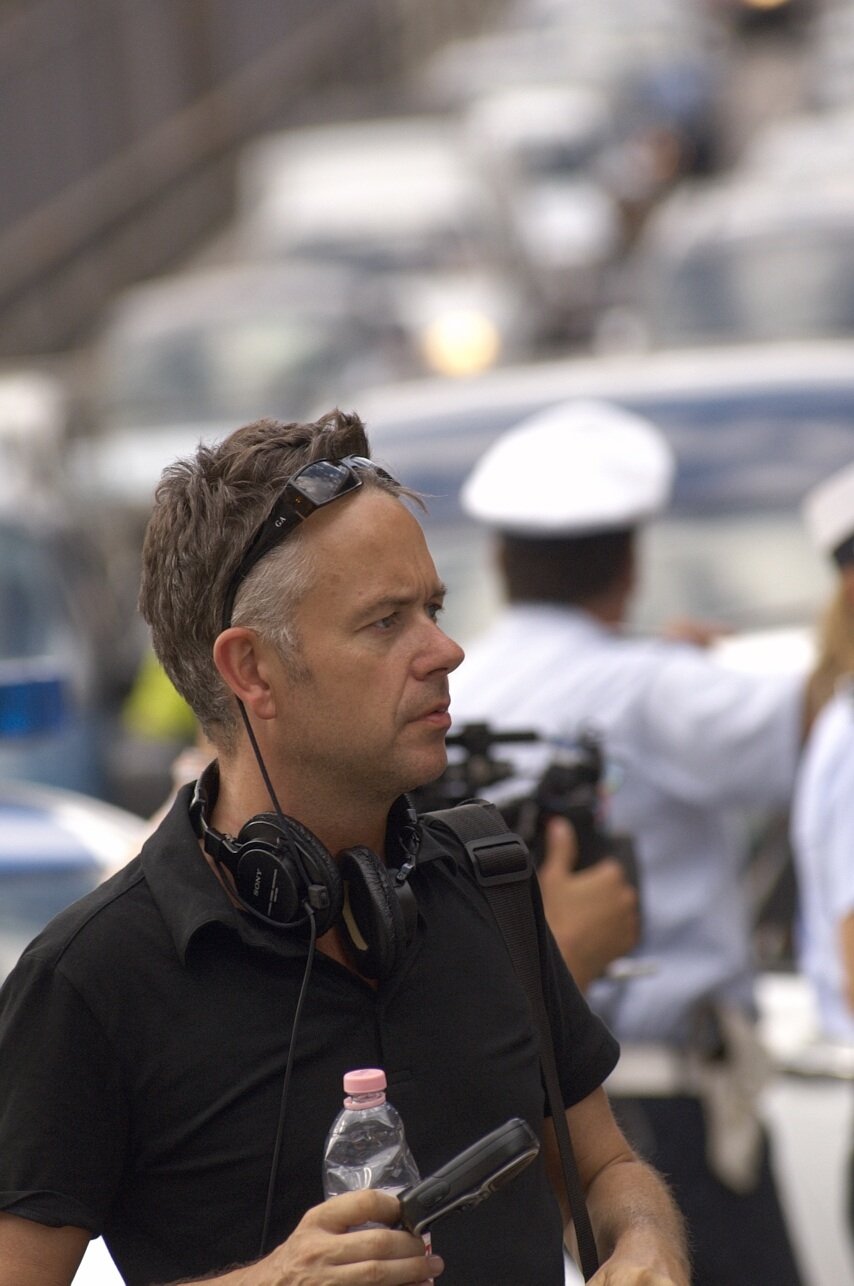
Michael Winterbottom
Nor is the liberal agenda (to put it at its most banal) of such films as Welcome to Sarajevo (1997), In This World, The Road to Guantanamo, A Mighty Heart (2007) and Shock Doctrine, the 2009 documentary he co-directed with Mat Whitecross inspired by Naomi Klein’s concept of ‘disaster capitalism’. British filmmakers rarely combine politics and literary adaptations – not to mention sci-fi, westerns and film noir.
Winterbottom has also made three films based on novels by Thomas Hardy: Jude (1996), The Claim (2000) – loosely based on The Mayor of Casterbridge – and Trishna, which transposes Tess of the D’Urbervilles to present-day India.
He can be both wryly humorous – as in 24 Hour Party People (2002) and A Cock and Bull Story (2005), both starring Steve Coogan – and confrontational, whether on the subject of sex (2004’s 9 Songs, the story of a relationship told through explicit sexual encounters, which yields an alarming selection of ‘If you liked this…’ suggestions when you order the DVD from Amazon) and violence: the Guardian’s Peter Bradshaw described The Killer Inside Me (2010) as “sickening” (while admitting it was true to the spirit of pulp thriller writer Jim Thompson’s cult novel as well as quite liking it).
Plus there is the irresistible challenge of the unfilmable, which is how you might have described the story of the Hacienda, Factory Records and the career of Tony Wilson if you hadn’t seen 24 Hour Party People (and maybe even if you had), not to mention Tristram Shandy before Winterbottom and his co-writer Frank Cotterell Boyce turned it into a film-within-a-film in A Cock and Bull Story.
The easiest label to stick on Winterbottom’s films is that old standby “a sense of place” – as in the road from Afghanistan to London in In This World, northern England in The Trip (2010) or (especially) the Rocky Mountains of the US in The Claim, where the place and its snowy extremes threatens to overwhelm the drama.
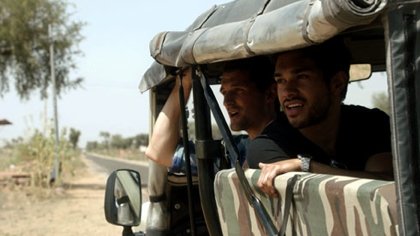
Trishna (2011)
Trishna is a key example of this tendency: the film is inconceivable without the contrasting landscapes of Rajasthan, where the title character comes from, and Mumbai where she lives with English-born Indian Jay before their relationship goes sour. The place seems to define the person and determine – or perhaps more properly, to reflect – his or her behaviour in a seductive reworking of the Romantic fallacy.
Winterbottom, however, insists it goers deeper than this. “If you have a situation that’s interesting, a landscape can make it more attractive,” he admits.“But I think for me it’s more about the individual in his or her society. I wouldn’t want landscape to be just a pretty backdrop to the story. The relationship between the individual and the world around them is what you want to show. The world around them is important: not just the way it looks but the way it operates, the way in which people live in that world.” It’s not difficult to see why he keeps coming back to Thomas Hardy.
But the most revealing comment about Winterbottom’s working method as a director comes from Riz Ahmed, who first worked with him straight out of drama school in The Road to Guantanamo and returns to play Jay in Trishna.
“Working with Michael starts off being completely terrifying because you don’t have a clue what you’re doing,” he says, looking back to the experience of that first film. “And then it becomes really liberating because you realise that, on some level, no-one does. So it’s impossible to make a mistake: you just have to trust that he will shape the story from the millions of hours of footage. Working with Michael is a joy – he’s very fast and loose. You just throw yourself into it and put your faith in him. It’s always going to be a lottery as to which bits he’s going to keep up there and which bits he’s going to scrape away.”
The process of filmmaking – shooting and editing – becomes the film, in other words, blurring the borderline between documentary and fiction, recording events that have happened and which are shaped into a final artwork by the director. It’s film defined (with apologies to André Bazin) as the ontology of the filmmaking process. Often, there is a journey, providing more opportunities for interaction with people and places.
And then there is Thomas Hardy. Winterbottom’s first brush with Wessex was Jude, a fairly straight adaptation co-written with Hossein Amini (who recently did Drive for Nicholas Winding Refn). The second, The Claim, started out as an Irish western, with Frank Cotterell Boyce’s idea of basing it on The Mayor of Casterbridge coming in later (and much of it going out again when the financing collapsed and a whole chunk of the screenplay had to be ditched). Trishna meanwhile takes Hardy’s tragic masterpiece, conflates Tess’s two lovers, Alec and Angel, into a single character, Jay, and moves the story to modern-day India.
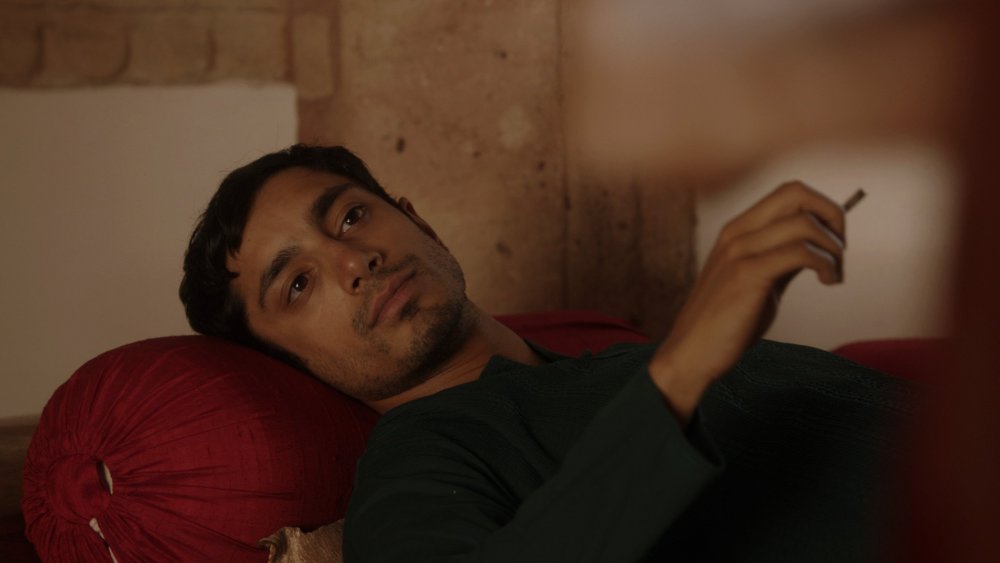
Trishna (2011)
Trishna turns out to be something Winterbottom has wanted to make for almost a decade. “I had the idea to do it eight or nine years ago. We actually sent the casting director out to India to look for someone to play Trishna and couldn’t find anyone,” he says. Even then, the plan was to merge Alec, the debauched industrialist’s son who seduces Tess, with Angel, the parson’s son seeking the spiritual truth of the countryside who falls in love with her but then cannot handle her history.
“Part of the attraction for me is that most people’s description of Hardy would be a fatalistic, gloomy writer, and I don’t think that’s true,” says Winterbottom. “With novels like Jude and Tess, he’s actually a very radical writer. He’s writing about the relationship between society and culture and the individual in a way that’s really bold and accurate. He never reduces individual characters to an expression of their role: he shows you a version of them that reveals all their contradictions and individuality but, at the same time, shows the way in which the pressures of society – sex, church and marriage – can effectively create their story or create their tragedy. Even if Jude doesn’t achieve what he wants to achieve, his children or his grandchildren will achieve it. When I first read it, I was a teenager; no-one in my family had gone to university before my generation.”
Merging Alec and Angel was the biggest change, he says. “It was a decision made purely from a storytelling point of view. In the novel, Angel and Alec are so crudely divided between the spiritual and the sensual. I just thought, ‘That might be all right in a Victorian context, but for a modern British guy, I just don’t think it will resonate.’ Most people are a mixture of both. Having worked with Riz, I knew he was a good enough actor to be able to combine Angel and Alec, to have that complexity… In the beginning, when he falls in love with Trishna, he wants to make love to her and he does. He’s not quite ready to think what that means for her. He just thinks, ‘Why shouldn’t I?’ He doesn’t really have that empathy about what it will mean to her.”
The chemistry between Ahmed and Freida Pinto (who plays Trishna) is what carries the film, more powerfully than any echoes of Wessex, proving how important this is in Winterbottom’s approach to filming. The road may be interesting but if you don’t engage with the travellers then the journey is not worth the candle, as one might feel about Code 46, where the chemistry between Tim Robbins and Samantha Morton is as glacial as relations between the two apparently were on set.
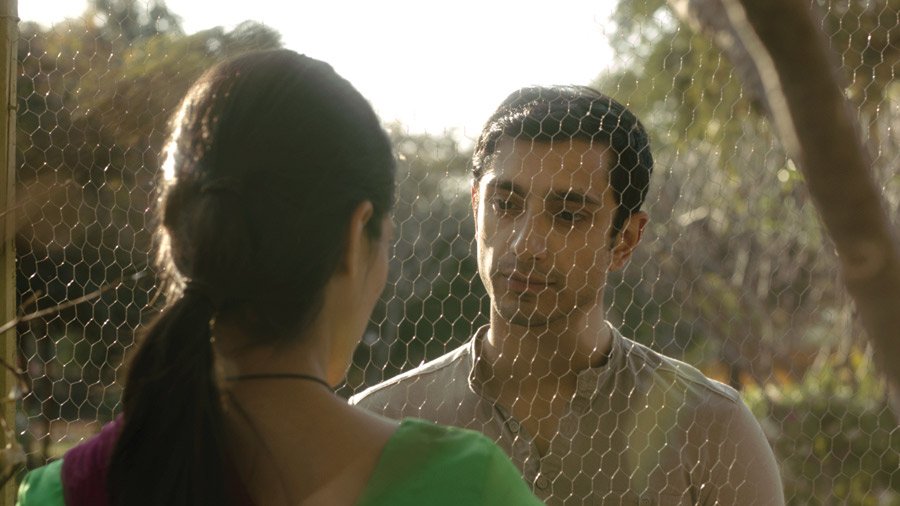
Trishna (2011)
Here, Pinto’s withdrawn, submissive Trishna is the perfect foil to Ahmed’s languid, laddish Jay. “Although she’s done a lot of good work and worked with a lot of people, Freida is still incredibly nice, incredibly gentle, incredibly sweet – all qualities that Trishna has to have. She has to be someone you believe is very passive, very much on the back foot, always charming, always sweet. But you never really know what’s going on inside her head.”
In the family scenes, although Trishna’s father and mother are played by actors, every other character in the village and the neighbouring town is local. “The family that she lives with in Osian, that was their house and they’re behaving as they behaved,” explains Winterbottom. “Freida, by spending time with them, was able to make sure that she behaved in the way that the daughter of that family would behave. And equally, when she gets to the hotel, the people she’s working with are real hotel workers, not actors, so she’s able to fit into the world of the hotel.”
As Jay, Ahmed, a British-born Indian who had only been to India once before the shoot, is doubly an outsider. “He’s a British middle-class male: that’s part of the story,” says Winterbottom. “There’s this gap, as in the book, between Angel and Tess, between a very rich middle-class guy from one culture and an Indian woman who’s working as his employee. Although he genuinely falls in love with her, he doesn’t understand her. There is this gap – and she is very passive. He projects onto her an idea of what she might be and falls in love with that. So when he suddenly discovers that she was pregnant by him and has had an abortion, he is shocked. Their relationship goes from being in public and a love affair to in secret and basically about sex. That is the trajectory of it…”
Wherever possible, Trishna – like all Winterbottom’s films – was shot on real locations with a limited crew, almost documentary style. ”All the Rajasthan stuff we shot with a small crew because it was all in houses, temples and hotels and so on. With a small crew, you have more time to think about what you’re shooting rather than about the logistics.”
Winterbottom even managed to stick to this approach with A Mighty Heart, the nearest he has come to a studio film, which had Angelina Jolie in the lead. “Obviously it was different because Brad and Angelina came to us and said ‘Do you want to do it?’ But Angelina on set was fantastic; we shot it exactly the way we normally do – 25-minute takes… We might be shooting a non-professional actor in the corner and she’d be acting away in the background for 20 minutes and not ever complain. She didn’t even have a trailer.
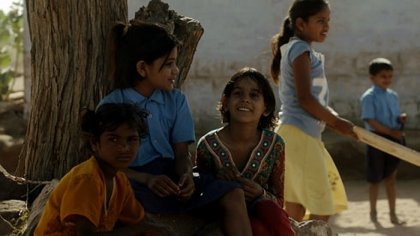
Trishna (2011)
“I hate working in studios,” he adds. “I occasionally do odd bits and pieces if I have to, but I do think that the world that the character lives in matters. In Trishna, the family house was important; they live in that house and that feeds into the film. There’s that awful situation when you have a production designer come in and try and work out ‘What would they have on their walls?’ or ‘What food would they have in the cupboards?’ You go to a real place and all that stuff is a given.”
If this sounds like documentary-style, it is and it isn’t, according to Winterbottom. What counts is the level of observation. “The first thing I ever did was on Ingmar Bergman [Ingmar Bergman: The Magic Lantern], but that’s not a documentary,” he says. “I don’t think many documentaries these days are truly observational. You have talking-heads stuff, or you get Michael Moore – almost comedy documentaries. A lot of films I make are observational, but they’re fictional and they’re with actors.
“In general, it’s about keeping things very relaxed. If you’ve got scenes with just Freida and Riz, the reason for keeping things fluid is because you’ve got two very good actors and you want them to have the space to find something. You’re trying to find moments of intimacy. So I would say ‘This is the rough idea for this scene but you’re free to do what you want within that.’
“Almost everything I’ve done is fiction,” he insists. “Something like In This World is observational but it’s fictional; and The Trip is fiction. In a way, everything is a photographic record of the experiences you’ve found. I observe things: two refugees are on their way through a place and they get stopped and they respond in the way that they do… But is that a documentary? No, it’s not, because you’re controlling the story.”




